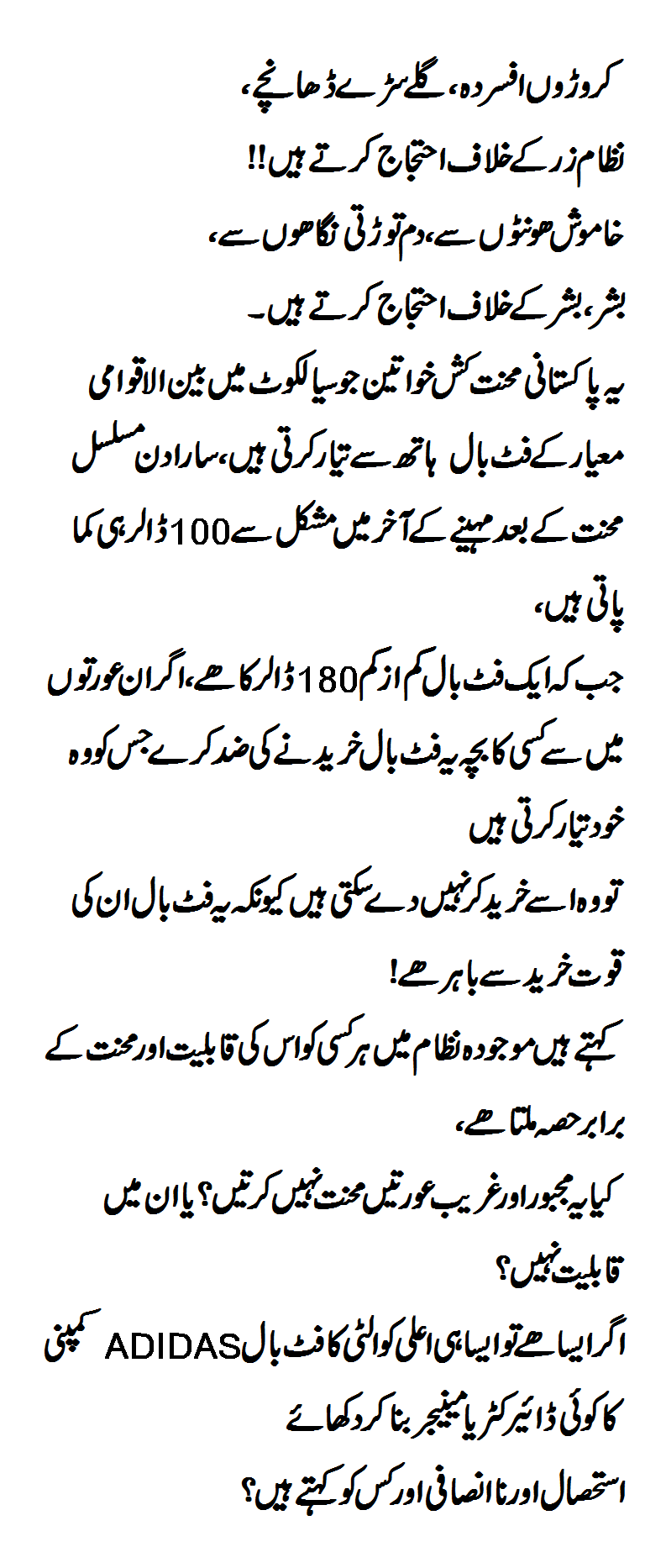Over 80% of the world’s high-quality hand-stitched footballs begin with the home-based work of female villagers in Pakistan’s Sialkot region.
These women belong to one of the most vulnerable groups in the global economy. Working from home and poorly paid, they experience conditions familiar to those in precarious jobs in developing and developed countries alike.
They are paid by the piece rather than earning a wage. They lack job contracts, social security and guarantees of work. And they must deal with intermediary subcontractors rather than their “real” employers.
However, the best course of action is not to outlaw this work. Rather it’s to regulate it and provide institutional support for their collective organisation.
This is because, when viewed in the context of their family and social networks rather than in an individualistic framework, the chance to earn even a low cash income has improved village women’s economic, social and psychological well-being.
Capabilities and well-being
Football manufacturing in Sialkot dates back to the early 1900s, when male members of the leather-working caste supplied sporting goods to British India.
By 1972, the work had shifted to small factories. But since then manufacturers have circumvented worker protection laws by shifting labour-intensive processes such as hand-stitching to village women working at home.
Researchers have suggested a number of reasons for the workers to prefer home-based work. This includes avoiding the costs of on-site work and the flexibility of being able to combine work with family responsibilities.
On the other side, it’s been argued being tied to the home is a constraint on entry into public life and wider occupational choice. And even bringing in money does not empower women to claim an equal division of labour in housework.
